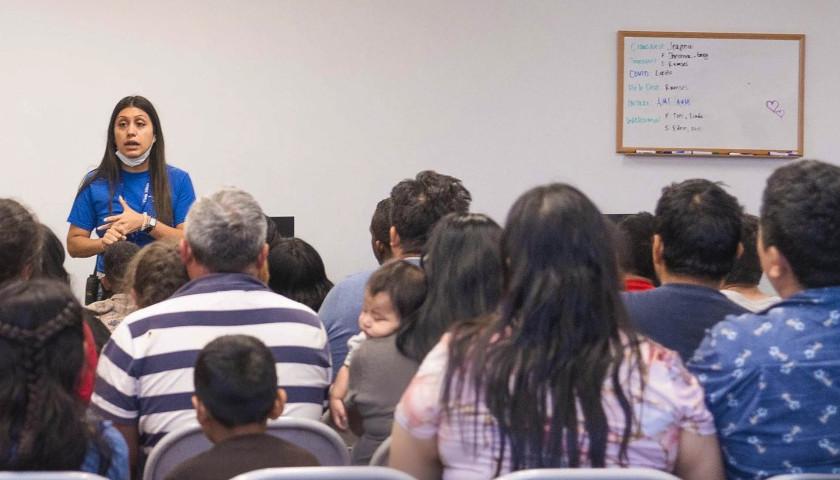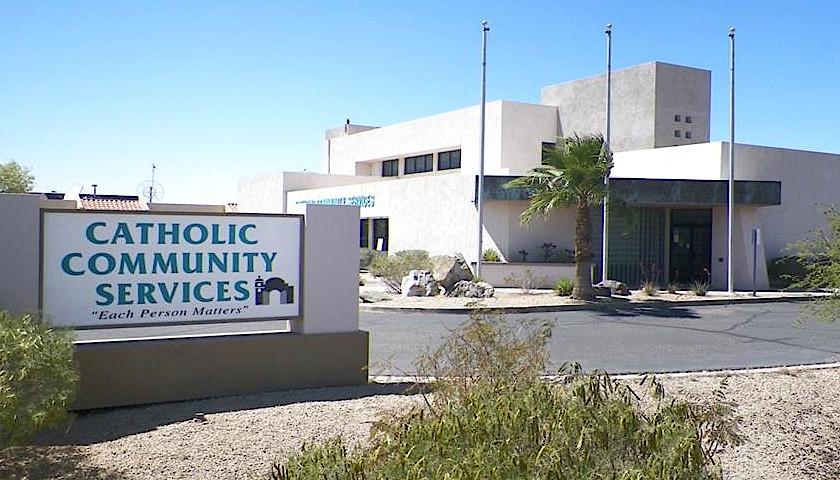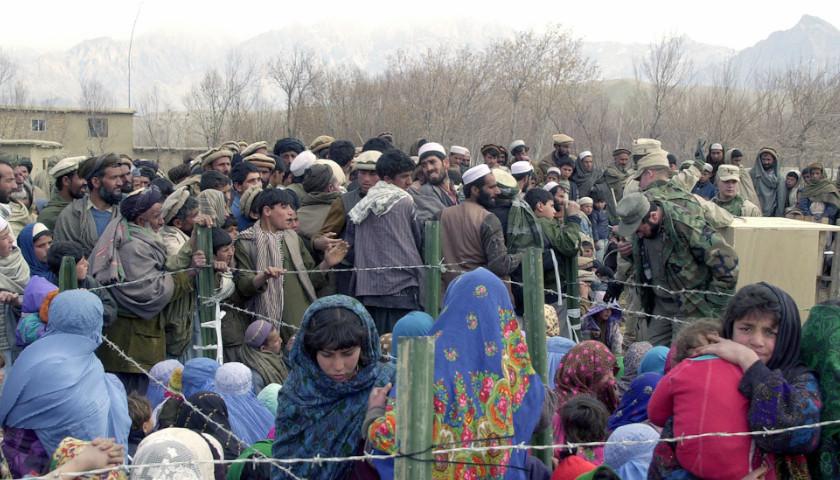Catholic Charities of Tennessee State Refugee Coordinator Holly Johnson has confirmed that the federal refugee resettlement contractor Bridge Refugee Services, may have to close its Chattanooga office due to new guidance from the U.S. State Department which reportedly informed voluntary agencies (VOLAGs) that any of their local offices expecting to resettle fewer than 100 refugees in 2018, “will no longer be authorized to resettle new arrivals.”
Bridge’s resettlement numbers for Chattanooga were reported as likely to fall below the 100 mark for 2018. It is not known whether this will lead Bridge to concentrate all its efforts in Knoxville where their other office operates.
Nine national voluntary agencies (VOLAGs) contract with the State Department to facilitate refugee resettlement through almost 300 local affiliated agencies across the U.S. which must first be authorized to receive new refugee arrivals.
Refugee resettlement contractors have become dependent on federal funding to operate these local agencies even though the State Department contract states that the public money is only “intended to augment the private resources” the refugee contractor is supposed to contribute. The contractors are paid a fee for each individual refugee they resettle. Currently, the contractor keeps $1,000 of the $2125 refugee fee paid by the State Department for each refugee.
A 2012 U.S. General Accounting Office report confirmed that because of the per refugee payment structure, resettlement contractors are incentivized “to maintain or increase the number of refugees they resettle each year rather than allowing the number to decrease.” However, when President Trump, as required by the Refugee Act, issued the annual refugee admissions for fiscal year 2018, the cap for admissions was set at 45,000 meaning that much less federal money would flow to the contractors.
In Tennessee, the majority of refugees are resettled by Nashville-based agencies including Catholic Charities of Tennessee whose Tennessee Office for Refugees was designated by the U.S. Office of Refugee Resettlement to administer the resettlement program for the entire state. In February World Relief closed its Nashville office while blaming it’s agency’s problems on President Trump for reducing the number of anticipated refugee arrivals.
In Chattanooga, Bridge Refugee Services is headed by former refugee Drocella Mugorewera. This office and the one in Knoxville partner with national VOLAGs Episcopal Migration Ministries (EMM) and Church World Services (CWS). EMM has admitted that it “receives very little money from the church-wide budget, instead receiving 99.5 percent of its funding from the federal government.” According to CWS’ 2017 financial statement, approximately 70% of their funding comes from the federal government.
Tennessee has sued the federal government for shifting the cost of the refugee resettlement program to state and local governments in violation of the Tenth Amendment. The suit is pending in federal district court.
Like most local refugee resettlement offices, Bridge relies on chain migration and the federal cash flow to sustain its operations although since fiscal year 2014, Bridge has worked to increase its refugee numbers by proposing to resettle an equal or greater number of no-U.S. tie refugees (except for fiscal year 2016 where the U.S. tie proposed number was 45 as compared to the no-U.S. tie 40).
The annual written proposals for refugee resettlement are submitted directly to the State Department bypassing any vetting by residents of the receiving community or the state legislature despite the federal government’s reliance on state revenue to help fund the program.
Holly Johnson, employed by Catholic Charities of Tennessee as director of its Tennessee Office for Refugees in the position of State Refugee Coordinator, is very complimentary of Bridge Refugee Services and appears to be very familiar with its operations. However, when The Star reported about disclosures made by a volunteer Murfreesboro group regarding the dumping of refugees by World Relief, Johnson suggested that her office should not be held accountable despite admitting to being aware that essential survival services were not provided to refugees.






[…] Tennessee Star reported in […]
[…] Tennessee Star reported in […]
[…] Tennessee Star reported in […]
[…] Tennessee Star reported in […]
[…] Tennessee Star reported in […]